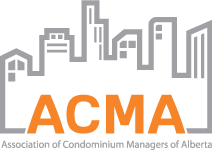Security In Condominiums
Security is an essential aspect of any community, and it is particularly crucial in condominiums where residents share common spaces and amenities. A well-designed and implemented security plan can help prevent criminal activities and provide peace of mind for residents.
Condominiums are a popular housing option in urban areas, providing a range of amenities and conveniences that are not available in single-family homes. However, with more people living in close proximity, security concerns can arise, making it necessary to establish measures to protect the community.
The first step in securing a condominium is to conduct a comprehensive security assessment. This assessment should identify potential security risks, vulnerabilities, and threats that may affect the community. It should also take into account the layout and design of the building, including access points, entry and exit points, and the number and location of security cameras.
Once the security assessment is complete, a security plan can be developed to address the identified risks and vulnerabilities. This plan should be comprehensive and include measures such as access control, security cameras, security personnel, and emergency response procedures.
Access control is a crucial component of any condominium security plan. This involves restricting access to the building and its common areas, such as parking garages, elevators, and swimming pools. Access control can be achieved through the use of key cards, passcodes, or biometric systems. It is also important to ensure that access control systems are regularly maintained and upgraded to prevent unauthorized access.
Security cameras are another essential aspect of a condominium security plan. Cameras can be used to monitor common areas, such as hallways, parking garages, and elevators. They can also be used to deter criminal activity and provide evidence in the event of an incident.
Security personnel, such as guards or concierge staff, can also help prevent criminal activity by monitoring access points, checking identification, and conducting patrols. They can also provide assistance during emergencies and notify residents of any security concerns.
Finally, emergency response procedures should be established to provide residents with guidance and support during emergencies, such as natural disasters, fires, or medical emergencies. These procedures should include evacuation plans, emergency contact information, and protocols for notifying residents of emergencies.
In conclusion, security is an essential aspect of any condominium community. By conducting a comprehensive security assessment and developing a comprehensive security plan, condominiums can prevent criminal activity and provide residents with peace of mind. Access control, security cameras, security personnel, and emergency response procedures are all critical components of a condominium security plan that can help ensure the safety and security of residents.




 © Copyright 2024 CS Management Inc.
© Copyright 2024 CS Management Inc. 